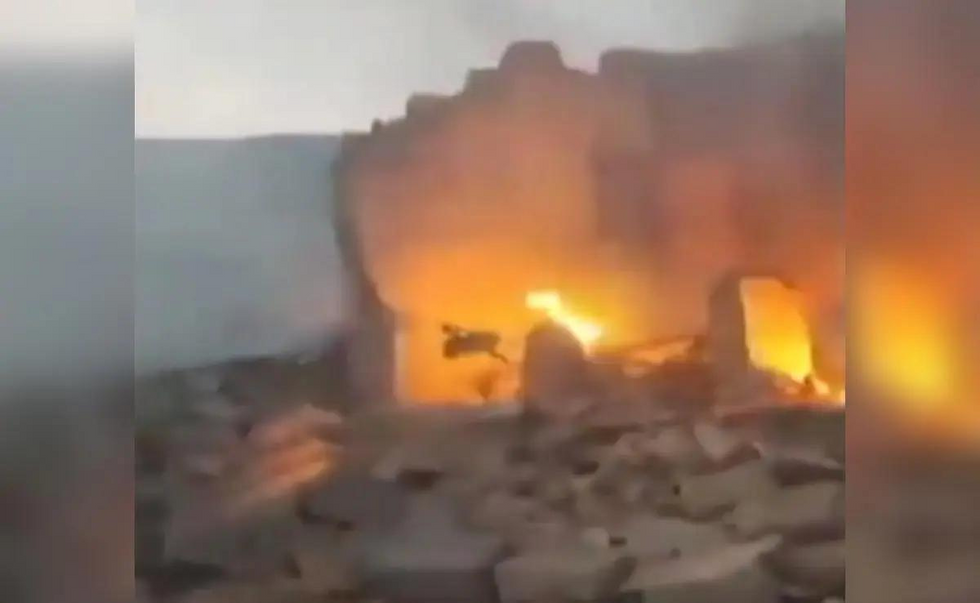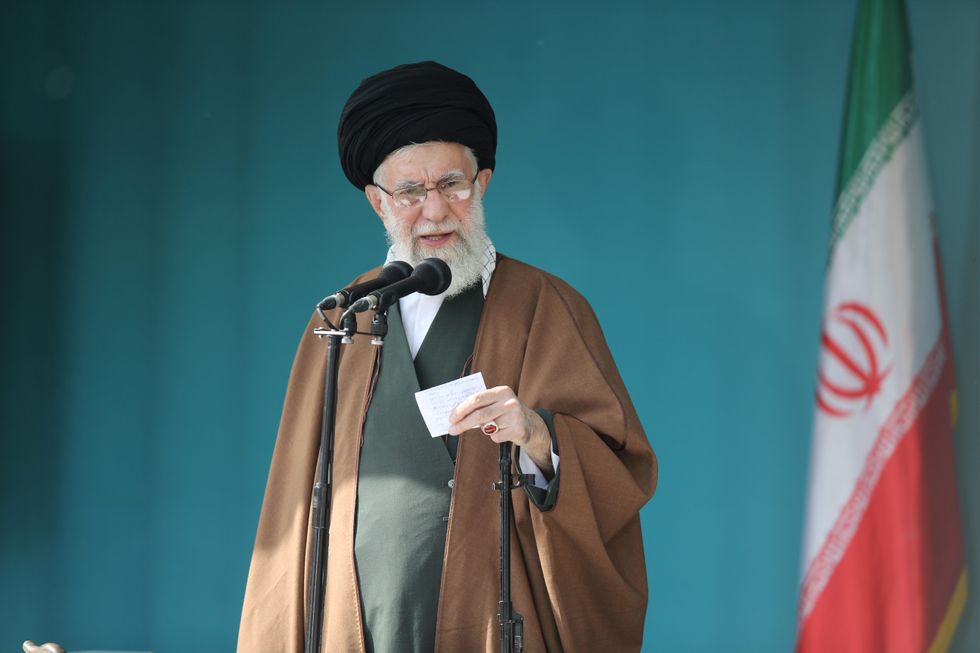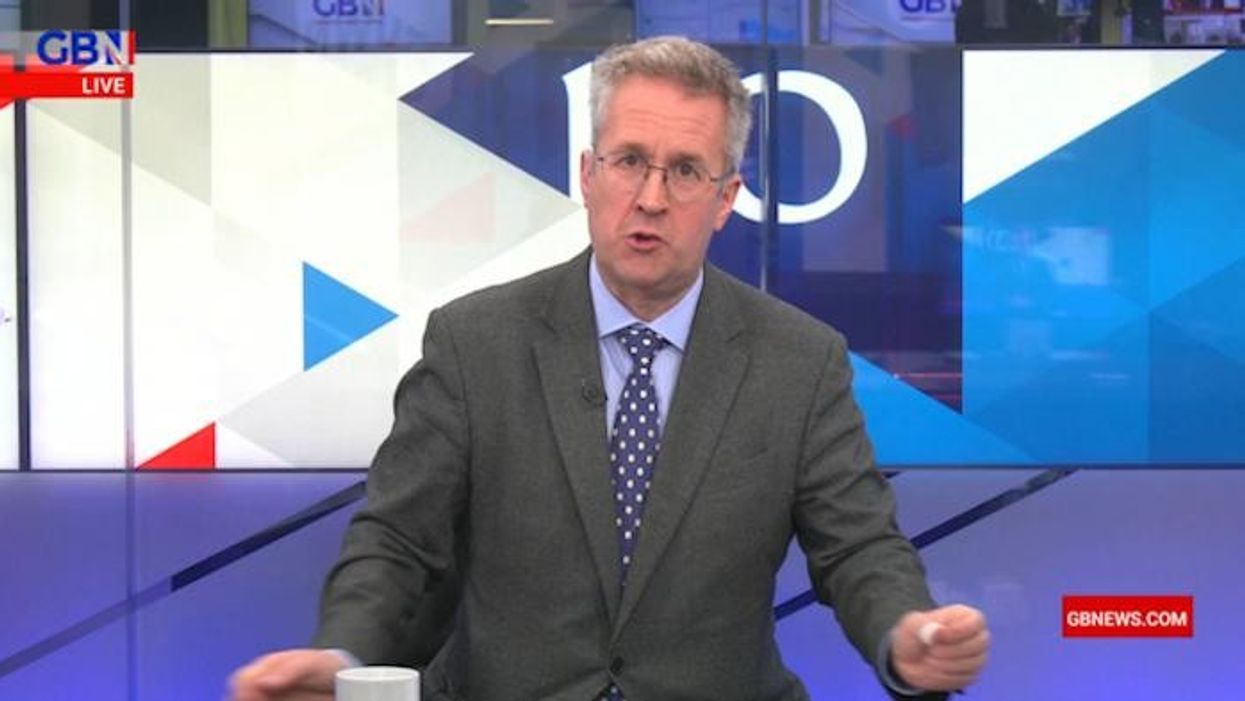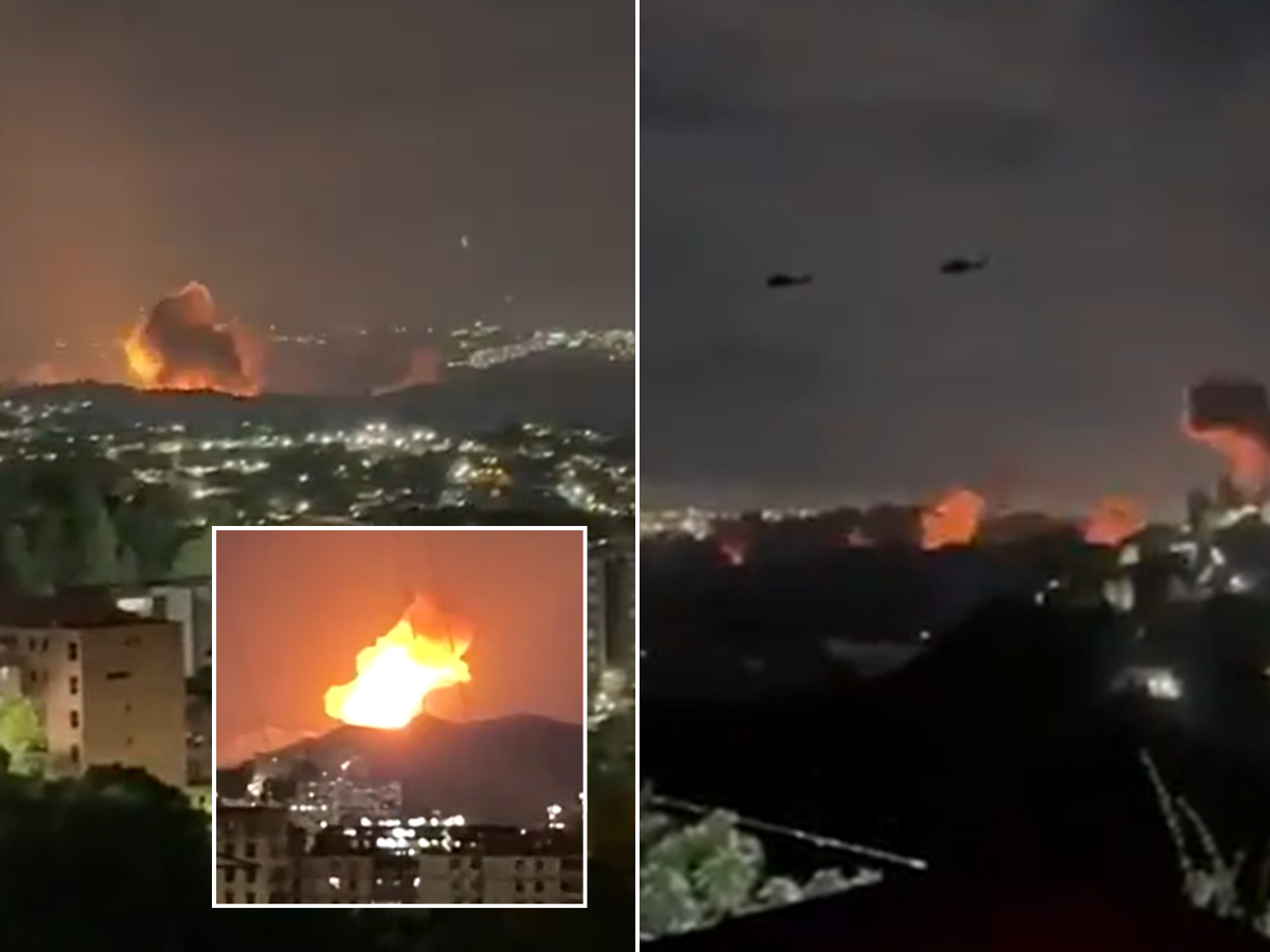Pakistan fires retaliatory missiles at Iran's 'terrorist hideouts' as Middle East tensions escalate

‘Pakistan has crossed a line by hitting inside Iranian territory’, a security expert said
Don't Miss
Most Read
Latest
Tensions between Pakistan and Iran are at a flashpoint after a retaliatory Pakistani missile strike killed at least nine people in Iran last night.
The strike, which Pakistan's foreign ministry said was targeting separatist Baloch militants in “terrorist hideouts”, comes two days after an Iranian strike on another group in Pakistan.
Several missiles hit a village in the Sistan-Baluchestan province on the Pakistani border, killing at least nine people, Iranian media reported.
This exchange is the highest-profile escalation in the last few years between the two states and has deepened worries of conflict ‘spilling over’ in the Middle East since the start of the Israel-Hamas war in October, with Iran-backed groups already active in Palestine and Yemen.

'Pakistan has crossed a line by hitting inside Iranian territory', a security expert said (stock image)
Pakistan said the attack was an “intelligence-based” counter-terrorism operation, describing it as a “series of highly coordinated and specifically targeted precision military strikes against terrorist hideouts”.
A foreign ministry statement said: “Pakistan fully respects the sovereignty and territorial integrity of the Islamic Republic of Iran.
“The sole objective of today’s act was in pursuit of Pakistan’s own security and national interest, which is paramount and cannot be compromised.”
Iran has summoned Pakistan’s most senior diplomat in Tehran to explain the strikes, Iranian media said.
LATEST DEVELOPMENTS:

Iranian action across its southeastern border is the latest show of its regional clout
| GettyPakistan’s caretaker Prime Minister Anwaar-ul-haq Kakar, currently at the World Economic Forum in Davos, will cut short his visit and return home, according to a foreign ministry spokesperson.
A Pakistani intelligence source said the strikes were executed by military aircraft, and targeted militants from the Baloch Liberation Front (BLF), a group seeking independence for Pakistan’s Balochistan province.
The strikes follow Tuesday’s Iranian attacks on Israel-linked militant bases in Pakistan, which it said hit civilians and killed two children – these prompted the recall of the Pakistani ambassador from Iran in protest of what it said was a “blatant breach” of its sovereignty.
Iranian action across its southeastern border is the latest show of regional clout from the Islamic Republic, which had previously launched strikes against Isis targets in Syria and an Israeli espionage centre in Iraq.
Pakistan’s emphasis that the strikes were a counter-terrorism operation indicates a desire to keep tensions low – Iranian Foreign Minister Hossein Amirabdollahian and Pakistani PM Kakar had already met at the WEF in Davos this week, and ties between the neighbours had appeared to be on the up.
Khwaja Asif, Pakistan’s former defence minister, said the action was retaliatory and measured, and emphasised the need “for ongoing efforts on the side” to avoid any undue escalation.
But Asfandyr Mir, a South Asia security expert at the U.S. Institute of Peace, said any Iranian motivation for attacking Pakistan “remains opaque, but in light of broader Iranian behaviour in the region it can escalate”.
Mir continued: “What will cause anxiety in Tehran is that Pakistan has crossed a line by hitting inside Iranian territory, a threshold that even the US and Israel have been careful to not breach.”











